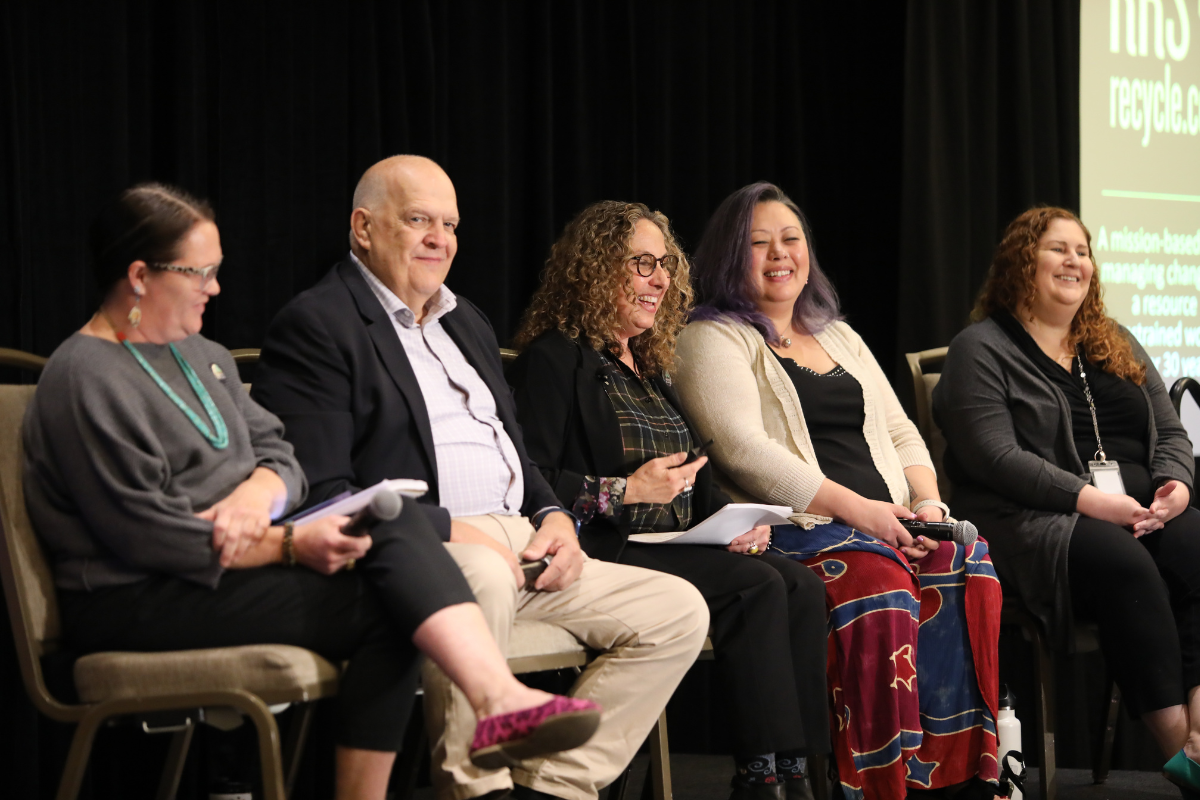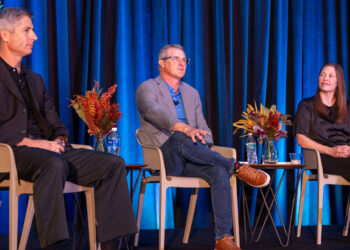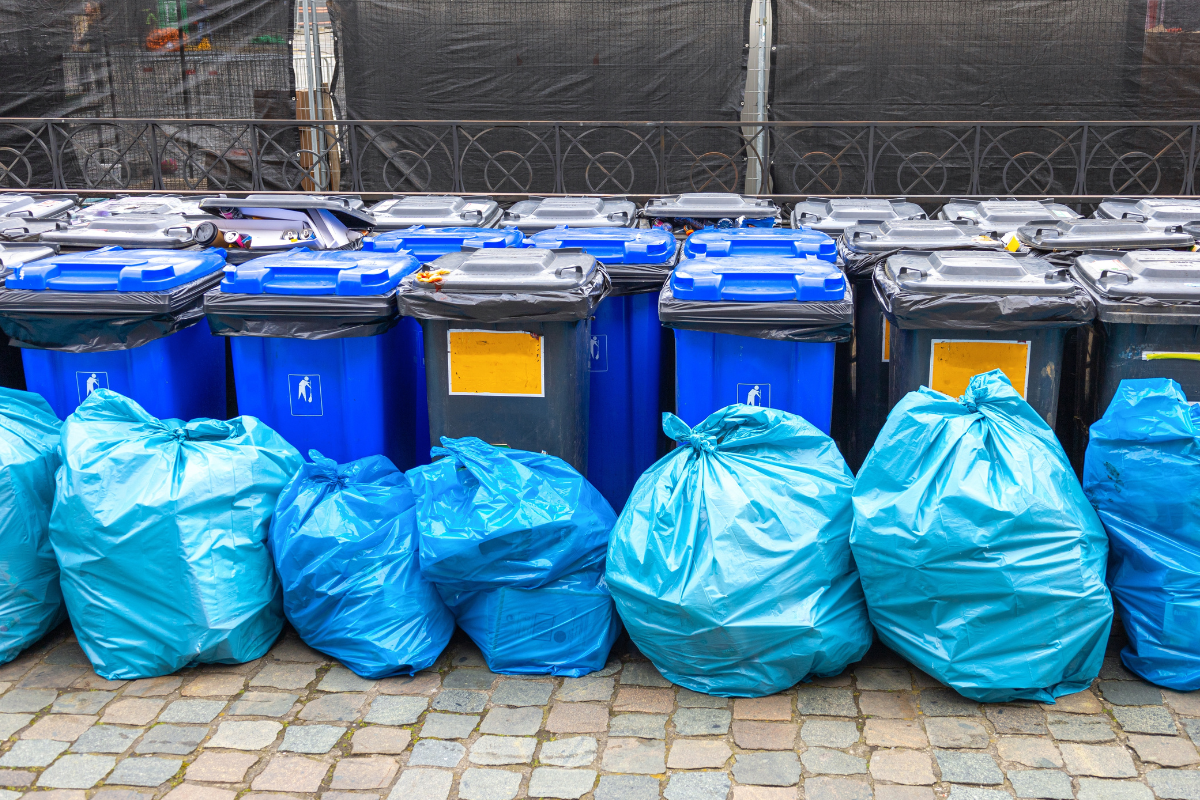Finding end markets for recyclable materials requires both building connections with existing businesses and community organizations and helping new ideas take root, several recycling officials said during a 2024 Resource Recycling Conference panel.
“I always say don’t throw away a job,” said Wayne Gjerde, soon-to-be-retiring recycling market development coordinator at the Minnesota Pollution Control Agency, referring to the economic potential of trash. Throughout his career, he’s held onto a rule of thumb: “It’s all about the money. If you can’t make money, there’s no end markets, it’s not going to happen. It’s not sustainable.”
Emmet County Recycling in rural northern Michigan doesn’t have the volume to draw the interest of far-flung buyers, said panelist Lindsey Walker, who works on market development for the county. But her program has turned that potential difficulty into an advantage, using the county’s understanding and control of its waste streams to test out hyper-local opportunities and to build on successes.
Around 15 years ago, for example, a marina approached Emmet County wanting to recycle PE shrinkwrap for boats.
“Come to find out, right in our very own town with a kid I graduated with, we have Petoskey Plastics,” an LDPE manufacturer that could take the film, Walker said. What started out as a small pilot continues today, with some material also going to Trex for its composite lumber.
“About 95% of our materials are staying in the local circular economy in Michigan,” Walker added, with programs for organics, glass, cartons, wood and other materials. “Seek out local markets, build relationships and provide good clean commodities,” she advised.
States and local governments can also take an active approach to help grow new end markets from the ground up, other panelists said. The NextCycle initiative by consulting firm RRS, for example, takes the established tools of entrepreneurship incubators — business plan training, mentorship, pitch competitions and connections to investors — and aims them squarely at reuse and recycling.
“It provides an on-ramp for innovation and entrepreneurship,” said Elisa Seltzer, a senior consultant at RRS who launched the Emmet County program before leading NextCycle Michigan. Colorado and Washington state also have their own branches of the program, with support from state governments and other organizations leading to tens of millions of dollars invested and millions of pounds of material recycled.
“We need resilient supply chains, domestic manufacturing, and recycling is sitting in the perfect place to provide the feedstock and grow our economy,” Seltzer said. “Real small players can play a role in their communities, and some can scale really big.”
For example, a wine bottle reuse business called Revino is supplying wineries around the Pacific Northwest and recently obtained a specialized bottle-washing machine from Germany after joining NextCycle Washington, said Elizabeth Chin Start, founder of Start Consulting Group and a partner in the state initiative.
Another participant, the nonprofit Refugee Artisan Initiative in Seattle, turns used textiles into purses and other household products and has now connected with the U.S. Forest Service to reuse its old firefighting hoses.
“It’s just so inspiring to see these groups,” Start said, adding that the Washington program takes care to involve local organizations and focus on underrepresented communities. NextCycle is also laying the groundwork to expand into Oregon.
Angela Fox, sustainability manager for the city of Royal Oak, Michigan, said taking part in NextCycle allowed her to connect with experts and get invaluable technical assistance.
She came in hoping to get her community on solid footing for an upcoming renegotiation of a waste management contract. Now the city is working on pilot projects for organics at schools and the farmers market, streamlined collection in the business district and other improvements.
“None of this would have been possible had it not been through NextCycle,” Fox said. “It’s really been nothing but amazing.”


























